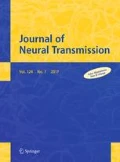Abstract
An important pathological aspect of Alzheimer’s disease (AD) is the apoptosis of neuronal and glial cells. Two members of the same protein family that regulates many genes involved in apoptosis are P53 and the heterologue P73. One single nucleotide polymorphism (SNP) in the gene encoding P53 (Arg72Pro, RS1042522), one dinucleotide polymorphism (G4C14-to-A4T14, RS 2273953, RS1801173) in the gene encoding P73, and two further SNPs in the same gene (−386 G/A, RS3765728; exon 5 T/C, RS1801174) were studied to determine whether DNA variations could influence the occurrence of the disease in a sample of Italian subjects with the sporadic late-onset form of AD. We observed that carrying the Pro/Pro genotype of P53 Arg72Pro was a risk factor with respect to the Pro/Arg + Arg/Arg genotypes [Odds Ratio (OR) = 2.02; 95% Confidence Interval (CI) 1.02–4.00; p = 0.047]. Furthermore, carrying the G/G genotype of the P73 −386 G/A was a risk factor with respect to the G/A + A/A genotypes (OR = 4.27; 95% CI 1.00–18.65; p = 0.047). A significant result was also obtained for P73 G4C14-to-A4T14. Among the patients, the homozygotes for the AT allele of this SNP had developed AD symptoms 5 years earlier than other genotypes (ANOVA p = 0.017). Though the results of particular polymorphisms analyses were not higly significant after correction for multiple comparisons, present data suggest that variation at the two genes may have a role in AD occurrence.
Similar content being viewed by others
References
American Psychiatric Association (1994) Diagnostic and statistical manual of mental disorders, 4th edn. American Psychiatric Association, Washington, DC
Beckman G, Birgander R, Själander A, Saha N, Holmberg PA, Kivelä A, Beckman L (1994) Is p53 polymorphism maintained by natural selection? Hum Hered 44:266–270
Dumont P, Leu JI, Della Pietra AC 3rd, George DL, Murphy M (2003) The codon 72 polymorphic variants of p53 have markedly different apoptotic potential. Nat Genet 33:357–365
Emahazion T, Feuk L, Jobs M, Sawyer SL, Fredman D, St Clair D, Prince JA, Brookes AJ (2001) SNP association studies in Alzheimer’s disease highlight problems for complex disease analysis. Trends Genet 17:407–413
Folstein MF, Folstein SE, McHugh PR (1975) “Mini-mental state”. A practical method for grading the cognitive state of patients for the clinician. J Psychiatr Res 12:189–198
Giannoudis A, Graham DA, Southern SA, Herrington CS (1999) p53 codon 72 ARG/PRO polymorphism is not related to HPV type or lesion grade in low- and high-grade squamous intra-epithelial lesions and invasive squamous carcinoma of the cervix. Int J Cancer 83:66–69
Hamajima N, Matsuo K, Suzuki T, Nakamura T, Matsuura A, Hatooka S, Shinoda M, Kodera Y, Yamamura Y, Hirai T, Kato T, Tajima K (2002) No associations of P73 G4C14-to-A4T14 at exon 2 and p53 Arg72Pro polymorphisms with the risk of digestive tract cancers in Japanese. Cancer Lett 181:81–85
Jacobs WB, Walsh GS, Miller FD (2004) Neuronal survival and P73/P63/p53: a family affair. Neuroscientist 10:443–455
Kaghad M, Bonnet H, Yang A, Creancier L, Biscan JC, Valent A, Minty A, Chalon P, Lelias JM, Dumont X, Ferrara P, McKeon F, Caput D (1997) Monoallelically expressed gene related to p53 at 1p36, a region frequently deleted in neuroblastoma and other human cancers. Cell 90:809–819
Kastan MB, Onyekwere O, Sidransky D, Vogelstein B, Craig RW (1991) Participation of p53 protein in the cellular response to DNA damage. Cancer Res 51:6304–6311
Kobayashi K, Nakano H, Hayashi M, Shimazaki M, Fukutani Y, Sasaki K, Sugimori K, Koshino Y (2003) Association of phosphorylation site of tau protein with neuronal apoptosis in Alzheimer’s disease. J Neurol Sci 208:17–24
Li Q, Athan ES, Wei M, Yuan E, Rice SL, Vonsattel JP, Mayeux RP, Tycko B (2004) TP73 allelic expression in human brain and allele frequencies in Alzheimer’s disease. BMC Med Genet 5:14–23
McKhann G, Drachman D, Folstein M, Katzman R, Price D, Stadlan EM (1984) Clinical diagnosis of Alzheimer’s disease: report of the NINCDS-ADRDA Work Group under the auspices of Department of Health and Human Services Task Force on Alzheimer’s Disease. Neurology 34:939–944
Melino G, De Laurenzi V, Vousden KH (2002) P73: Friend or foe in tumorigenesis. Nat Rev Cancer 2:605–615
Ohyagi Y, Asahara H, Chui DH, Tsuruta Y, Sakae N, Miyoshi K, Yamada T, Kikuchi H, Taniwaki T, Murai H, Ikezoe K, Furuya H, Kawarabayashi T, Shoji M, Checler F, Iwaki T, Makifuchi T, Takeda K, Kira J, Tabira T (2005) Intracellular Abeta42 activates p53 promoter: a pathway to neurodegeneration in Alzheimer’s disease. FASEB J 19:255–257
Rosenmann H, Meiner Z, Kahana E, Aladjem Z, Friedman G, Ben-Yehuda A, Grenader T, Wertman E, Abramsky O (2003) An association study of the codon 72 polymorphism in the pro-apoptotic gene p53 and Alzheimer’s disease. Neurosci Lett 340:29–32
Scacchi R, Ruggeri M, Gambina G, Martini MC, Ferrari G, Corbo RM (2001) Plasma alpha1-antichymotrypsin in Alzheimer’s disease; relationships with APOE genotypes. Neurobiol Aging 22:413–416
Terwilliger JD, Ott J (1994) Handbook of human genetic linkage. Johns Hopkins University Press, Baltimore
Wang Y, Kringen P, Kristensen GB, Holm R, Baekelandt MM, Olivier M, Skomedal H, Hainaut P, Tropé CG, Abeler VM, Nesland JM, Børresen-Dale AL, Helland A (2004) Effect of the codon 72 polymorphism (c.215G>C, p.Arg72Pro) in combination with somatic sequence variants in the TP53 gene on survival in patients with advanced ovarian carcinoma. Hum Mutat 24:21–34
Acknowledgments
This work was supported by the Italian National Research Council (CNR) and by grants from Sapienza University of Rome. We wish to thank K.A. Britsch for reviewing the manuscript style.
Author information
Authors and Affiliations
Corresponding author
Rights and permissions
About this article
Cite this article
Scacchi, R., Gambina, G., Moretto, G. et al. Association study between P53 and P73 gene polymorphisms and the sporadic late-onset form of Alzheimer’s disease. J Neural Transm 116, 1179–1184 (2009). https://doi.org/10.1007/s00702-009-0276-z
Received:
Accepted:
Published:
Issue Date:
DOI: https://doi.org/10.1007/s00702-009-0276-z




